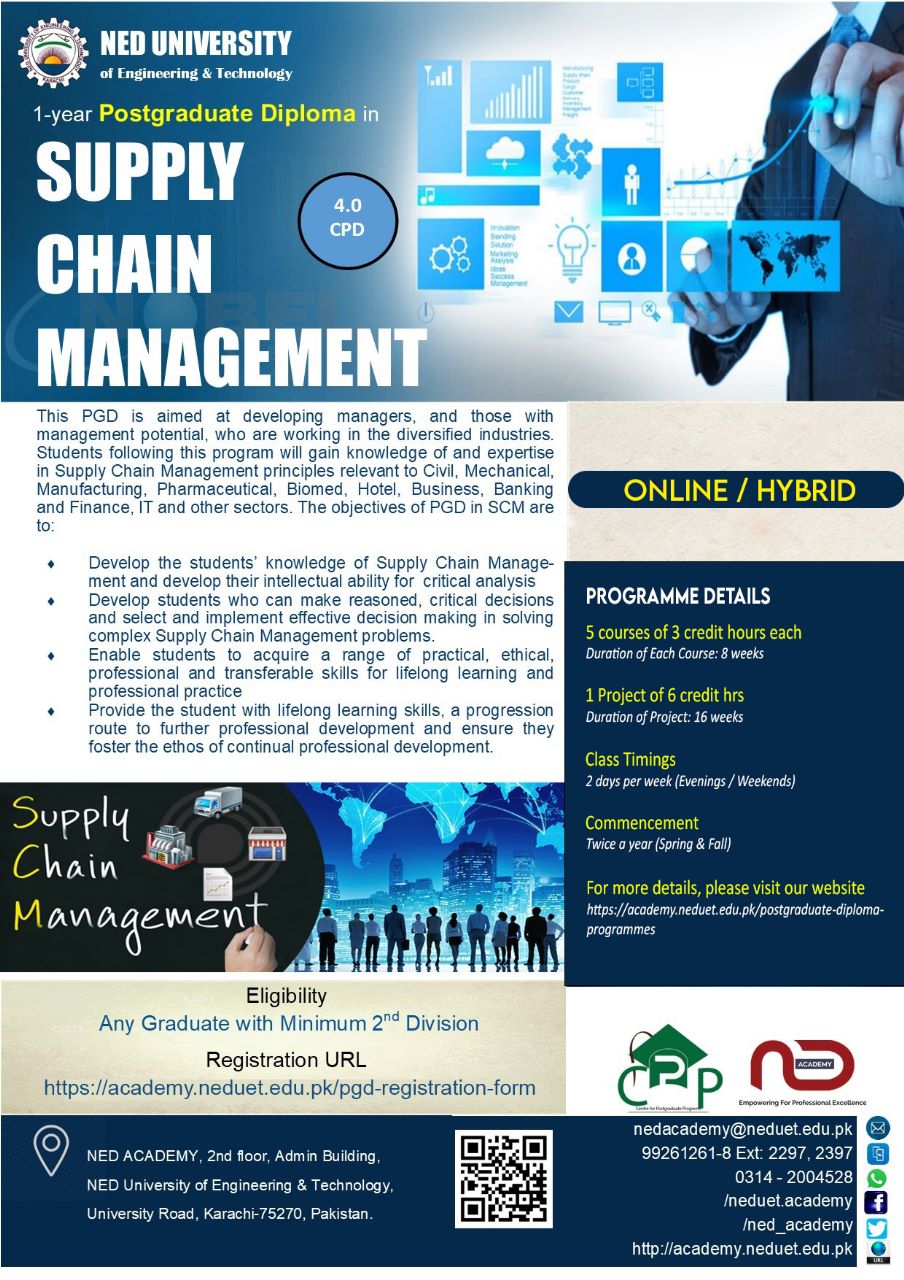ABOUT COURSE
Supply Chain Management
Introduction to Supply Chain Management, Production Planning and Master Scheduling, Materials Requirement Planning, Capacity Management and Production Activity control, Forecasting and Demand Management, Products and Processes, Lean Production, Total Quality Management, Strategic Supply Chain Management, Re-Engineering of the Supply Chain, IT-Enabled Supply Chain, Decision Support Systems for Supply Chain Management, Data Mining and Data Warehousing in Supply Chain Management.
Logistics, Transportation and Distribution Management
Introduction to Logistics and Distribution, Integrated Logistics and Supply Chain, Customer Service and Logistics, Channels of Distribution, Planning Framework for Logistics, Logistics Processes, Logistics Costs and Trade-off Analysis, Logistics Network Planning, Omnichannel Fulfillment, Principles of Warehousing, Warehouse Design, Storage and Handling Systems (Palletized and Non-Palletized), Order Picking and Packing, Receiving and Dispatch, International Logistics and Modes of Transportation, Outsourcing Logistics, Security; Safety and Environmental Factors in Logistics, Reverse Logistics.
Inventory Management
Fundamentals of Inventory Management, Purpose and Functions of Inventory, Classification of Inventory, Inventory Replenishment Management, Local Order Management, Global Order Management, Product Sourcing, Agreements and Contracts for Inventory Management, Inventory Costing Techniques, Inventory Cost Control, Managing Inventory Obsolescence, Warehouse Management, Just-in-Time Inventory Management, Lean Inventory- Concepts and Practice, Inventory Management in the Supply Chain.
Organizational Management
Evolution of management thought, classical, quantitative and behavioral schools; Interactions between organizations and their environments. The planning process; Strategic and tactical planning, developing planning premises, nature of managerial decision making, quantitative aids, management by objectives. Organizational structures; Behavior of the individual, work group, and organization; Coordination and spans of control, the informal organization; authority delegation and decentralization, groups and committees, managing organizational change and conflict. Motivation, performance and satisfaction; Building a high-performance team; Recruitment & staffing, Leadership, interpersonal & organizational communication, staffing and personal function. The control process; Budgetary and non-budgetary methods of control; Team performance measurement and improvement strategies. Use of management information systems.
Procurement and Contracts Management
Procurement Scope and Development, Procurement Life Cycle, Strategic Procurement, Public Sector Procurement, Lead Time and Time Compression, Sourcing Strategies and Relationships, Price and Total Cost of Ownership, Negotiations, Drafting Legal Tendering Documents, Selected Applications of Procurement (Project, Commodity, Capital, Services), E-Procurement, Best Practices in Procurement Management, Contracts and Performance Management, Contract Act, Sales of Goods Act, FIDIC Conditions of Contract, Best Practices in Contract Management


